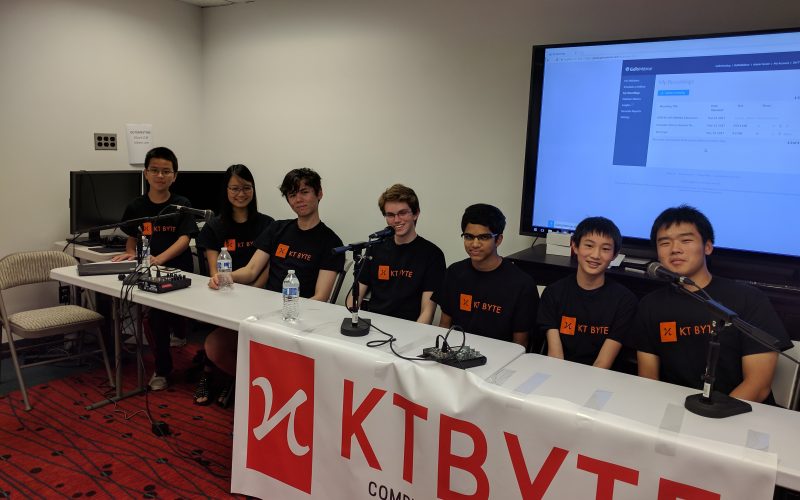- One student’s project was on cybersecurity, inspired by the cause of citizens escaping oppressive governments. He looked at how people could use AI-based website fingerprinting to bypass the anonymity of the Tor network, and worked out ways to protect users from these attacks.
- Another student used computational methods to study chromosome folding, searching the features of chromosomal folds for hidden function.
“PRIMES really emphasizes the creative side of science.” — KTBYTE Student PanelistMIT PRIMES is not all research-based. One candidate said that his project was more like a reading group, where they worked together to enhance each other’s knowledge. Regardless of format, most projects require at least one paper to be written and presentations to be given on their findings. These papers aren’t the equivalent of homework, they’re often peer-reviewed pieces of research that contribute to the scientific canon. One student, whose paper covered the implications of poorly chosen cryptocurrency parameters, was invited to travel across the country to a computing security conference to present his findings to a hall full of professionals.
Autonomy for MIT PRIMES Students
It was clear that PRIMES was not like the educational systems the students were used to. They reiterated how fun the program was, partly because they were treated as independent adults. They were allowed to ask ‘why’ repeatedly until their mentors couldn’t answer, then they went to find out the answers themselves. There was no set syllabus to memorize, instead, they were trusted to define their own journeys. After two weeks in the program, one student approached his mentor with his very own research idea – and to the student’s surprise, his mentor gave their approval, and they worked on it together.“If you want to do something your way, chances are you’ll be able to do it your way.” — KTBYTE Student PanelistStudents were given independence in the tools they used to complete their projects. Between them, they used a range of programming software and languages, including Python, Sage, Maple, C, C++, R, and Java. Some students reported switching between these languages to find one that suited them best. Others chose some of these languages simply because they wanted to learn them. A far cry from their strict school timetables, most panelists were given almost total flexibility in how they wanted to operate. Some students met their mentors at a fixed time each week, while others met when it was needed or convenient. There was a lot of variation between groups and between projects – no two PRIMES experiences were identical. The flip side of all this is that PRIMES is not a program for unmotivated students. Multiple panelists made clear that you get what you put into it – those who dedicate themselves to their research are hugely rewarded, those who don’t strive, achieve little.
A Community of Discovery
Being part of PRIMES means close collaboration with top intellects. Students were able to bounce around ideas with people who are leading their respective fields. They were also plugged into MIT’s academic community and could attend various conferences and networking with the broader community of academics at the forefront of scientific thought.“A really cool thing about PRIMES is that you get to participate in a lot of excitement because you’re working with people who are on the cutting edge.”Being part of this academic community was an incredibly empowering experience. One student, who was placed in a computational lab, said that she expected to find a bunch of elderly men in lab coats. Instead, she found young, relatable, researchers who shared her curiosity and geeky interests.
“I realized that, wow, someone like me can really push the boundary of science and human knowledge – it’s something that I can contribute to.”Another student had spent a lot of time in math camps, where he was always surrounded by talented people. Yet it was only at PRIMES that he truly felt surrounded by both talented and passionate people. He was shocked by how driven his peers were and how seriously they took their work. The environment fosters a dedication to work.
“If you really do find a passion for doing research, you’ll definitely find a group of people who share that passion.”When asked about the overall benefits of the experience, the panelists were unanimous in their praise. They claimed that it was a great introduction to the realities of research, a rare opportunity to connect with inspirational people and contribute to the boundaries of human knowledge. What’s more, they described the lessons they’d learned in patience, focus, determination, and perseverance as invaluable. Overall, PRIMES was a unique experience that taught them many things they never would have learned in school.
The next MIT PRIMES application round opens in September 2018.
The panelists also shared their advice on applying to PRIMES! Read about it here.